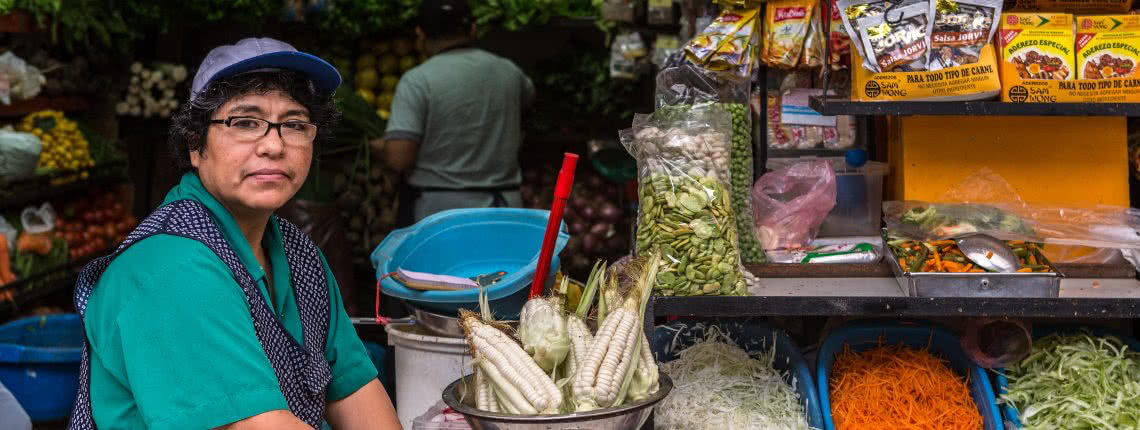Media statement and interview opportunities
May 26, 2020 - Despite the troubling and false narrative that has taken hold in Peru and is spreading across Latin America about the role of informal market traders in the growth of COVID-19 cases, these workers are not the problem. In fact, they have been fighting to be part of the solution, in partnership with local governments and market administrators, from the outset of the pandemic.
In Peru, market traders have long been asking for support in many forms: clear and unified public guidelines for market visitors, support to improve market infrastructure, and financial supports like the same emergency relief granted to formal enterprises and, in many countries, cash grants for individuals, which make it possible for potentially infected individuals to stay off work.
In Peru, they have also requested access to COVID-19 tests, so all staff in markets can be tested. In fact, market associations have offered to co-fund the testing in Peru, but the Ministry of Health has not provided tests.
Above all, Peru’s market associations—most of whom own the land on which the markets sit—demand to be included in the official entities that are setting policies and supervising markets during this emergency.
“The market workers are the experts,” says Carmen Roca, who coordinates WIEGO’s Focal City work in Lima. “The government authorities, who have no knowledge about market operations, should be seeking that expertise to ensure markets operate more safely.”
While local contexts differ, these basic facts are true across Latin America’s informal markets:
Informal food traders are vital links in food supply chains. Despite their fears of COVID-19 and the risks that they face, street vendors and market traders are continuing to work to keep food systems intact and functioning. They are essential to feeding the city.
Informal markets provide affordable fresh foods needed for good nutrition—an important part of maintaining the health of people in the midst of this pandemic.
Street vendors and market traders are on the frontlines of preventing COVID-19. These workers have to remain strong and healthy so they can continue to provide for themselves and their families, and they cannot easily access health care. For these reasons, they are being very vigilant in preventing transmission of disease, within their means. However, they need support from the government and from the public to do so.
- Market traders, with help from their associations, are providing personal protective equipment for workers. Governments can and should help with this.
- The government should ensure markets have water points and sanitizers to facilitate safe hand washing.
- The public can help reduce risk by maintaining as much physical distance as possible and minimizing touching of products.
- From police, market traders want and need support—not harassment—to help ensure customers respect health protocols and maintain physical distance.
Street vendors and market traders understand the need for extra precautions. They are passing on INFORMATION about risk reduction through their highly efficient communications systems. They know to remain physically distant and clean their hands and surfaces. They are endeavouring to adhere to those principles in order to serve the public, even in crowded spaces.
Public Health experts agree that informal traders can trade as safely as supermarkets as long as health guidelines are followed.
This crisis highlights the need for immediate municipal improvement. It has underlined the historic lack of municipal investment in street and market infrastructure, such as water access, paved surfaces, drainage and adequate storage. This is the time to make these necessary investments to ensure healthier, safer public spaces that serve the residents of our city now and into the future.
MEDIA INTERVIEW OPPORTUNITIES
To arrange an interview with WIEGO’s team in Lima or Mexico City or with informal market traders/leaders, contact:
- Lima - Carmen Roca, Carmen.Roca@wiego.org, +51 975 382 901
- Mexico - Tania Espinosa, Tania.Espinosa@wiego.org, +55 1 55 1920 6793
- All other inquiries - Demetria Tsoutouras, media@wiego.org, +1 613 882 3364
